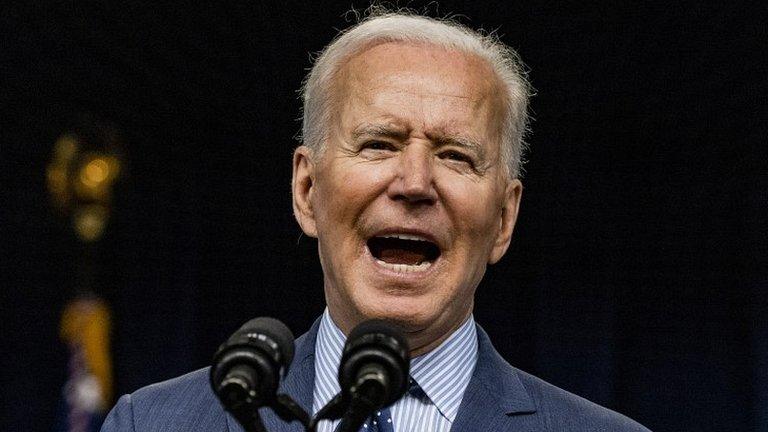G7 summit: Why does it matter?
- Published
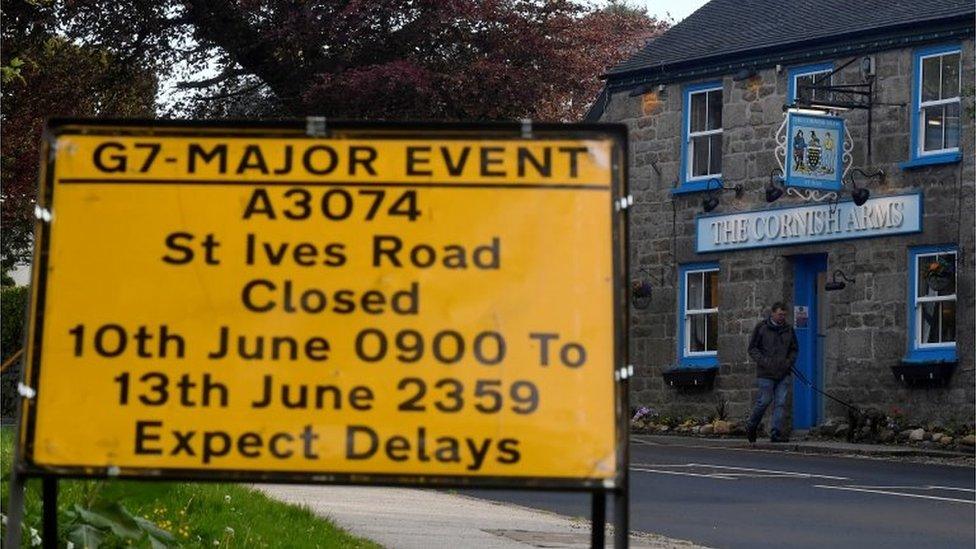
Do summits like this matter? "Occasionally!" comes the answer from a former government insider who worked for years at the very top.
They warn that global get-togethers - however glamorous the location, however acute any particular political emergency, however good the freebies for the thousands of attendees - can descend into 'waffelage'.
As the most powerful elected people in the world prepare to occupy a tiny Cornish bay for a few days, will this be an occasion that makes a difference to any of our lives or will it be waffle in the end?
A senior diplomat closely involved in the preparation is confident, "this will be very meaningful."
It is the first time the new American president will have met the relatively new British prime minister in person - a big moment by any measure.
And it's the first time that the leaders of the world's biggest democracies have gathered like this since their countries were hit by a genuine emergency - Covid.
This current cast of leaders, particularly with a new boss in the White House, has given the impression in the run up to this meeting that they want genuinely to work together as the pandemic, while still with us, begins to fade.
The next few days will show whether they really mean it or not.
Even in the age of video calls and instant messages pinging their way around the world, summits do matter, because leaders and their officials can talk face to face.
Real business can get done during "the hallway conversations, the drinks at the bar", the diplomat says.
Huge public attention puts the pressure on, and the moment where they all wave goodbye and climb back into their limos or helicopters provides a deadline to decide.
Without doubt, real life contact makes a difference to what is decided.
Secure broom cupboard negotiations
One former senior figure in Theresa May's administration recalls a moment of jeopardy at a summit with President Trump.
He was planning to leave early, without signing up to the form of words that the other nations wanted.
The former official told me he was ushered into what was described as a "secure broom cupboard" with the then Australian leader, Malcolm Turnbull and the French President, Emmanuel Macron.
It's said they remained locked in argument in the tiny room, until Mr Trump agreed.
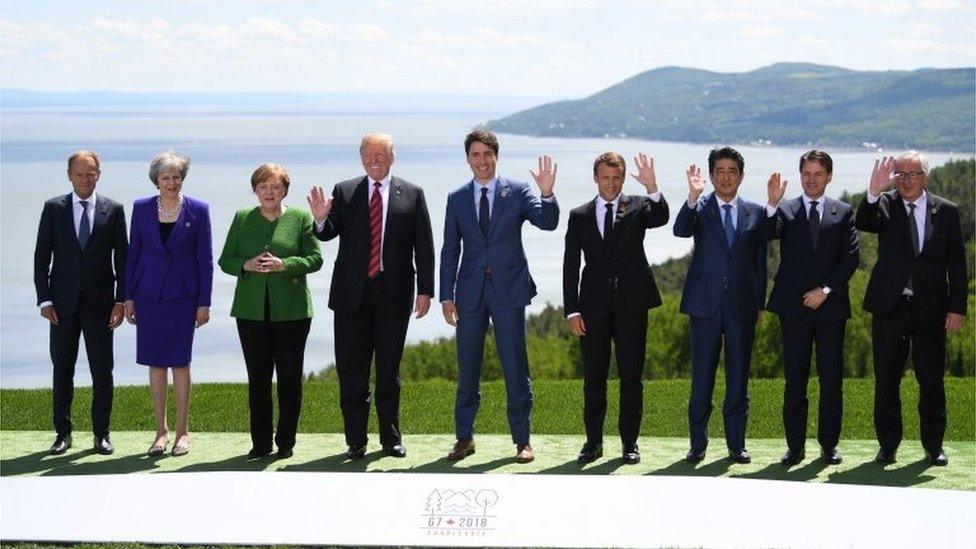
The traditional G7 "family photo" taken in Canada, 2018
At a different G7 meeting in 2018, again the other nations were struggling to get Mr Trump and his officials to agree on the principles the others wanted to publish.
The dispute was over if and how the final document would refer to the "international rules based order" - the loose jargon for how democracies agree to behave and work with each other through shared institutions like the UN.
Without a specific definition of what the "rules based order" really meant though, the US was reluctant.
So a small group of leaders themselves and a few key officials haggled face-to-face with the president and his powerful adviser, John Bolton, outside the formal meetings to do a deal.
The compromise was that the document would refer to "a" rules based order, not "the" when referring to the "international rules based order".
At a summit, leaders of the free world, and a few of their close aides, spent precious time arguing over the use of the definite or indefinite article...
And some of the broader tensions during that meeting were captured in a classic photograph.
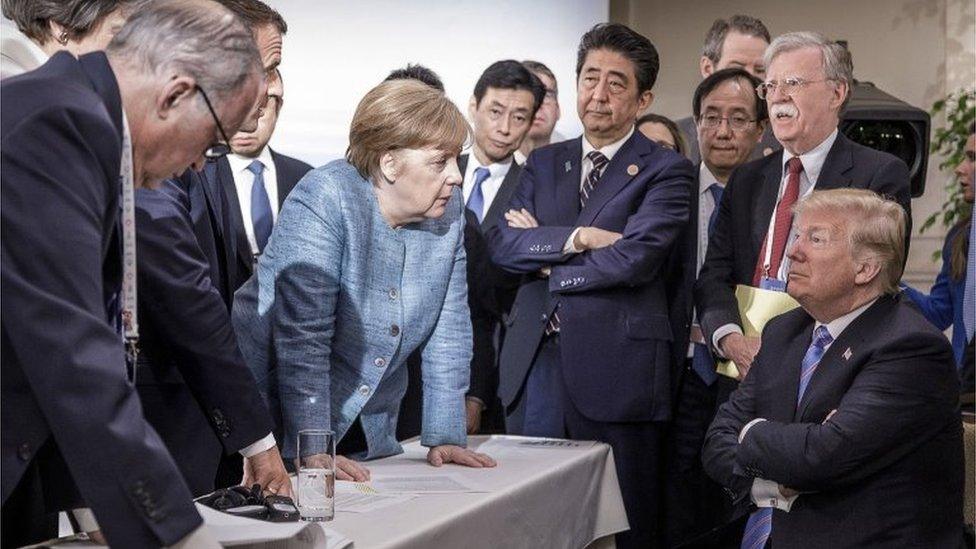
Summits are the product of months and months of work by the hosts, and are carefully planned to within an inch of their lives and are huge opportunities for countries to show off.
Covering the meetings over the years I've witnessed astonishing firework displays in China, the Argentine first lady hosting an elaborate tea party for leaders' spouses where even the air kissing seemed to be choreographed, parades, concerts, and plenty of the events themselves that are designed to show the leaders' interactions to the world.
Summits have their own language too - the 'family photos' - the moments where the leaders have to take pre-appointed places for official snaps to be taken.
The 'bilats' or 'trilats' - one-to-one, or one-to-two meetings where the bond, or lack of, between the politicians is so blindingly obvious.
The 'communique' - the final document that leaders sign up to that's published at the end; prepared for months in advance by the 'sherpas', senior officials for each country, but the final version agreed only by the leaders themselves at the last minute.
Jellyfish and awkward conversations
But when the most senior politicians in the world and their most senior staff are in essence locked down together for a few days it is those unscripted moments that stick in the mind.
Bumping into a European prime minister who was wandering around a corridor in Brussels, who seemed lost, but said yes to an interview then and there in the dingy basement, filmed on a phone - that made the news.
One very early morning in a hot, foreign clime when trying to get some sea air to wake up after only a couple of hours of sleep, I encountered a very prominent official on the beach who rather mysteriously had company at that time of day.
One of their colleagues, seconds later, came leaping out of the sea having been confronted by some jellyfish - ending the need for a longer, awkward conversation.
When a tense European summit dragged on with David Cameron, while we hacks were still hanging around inside waiting for news, the German Chancellor Angela Merkel had had enough and popped out with her team for chips.
And at the prime minister's own first summit in charge in Biarritz he went for his own swim off the French Atlantic coast.
Of course, Boris Johnson being Boris Johnson, he didn't keep it to himself, but in classic style he used his swim out to a large rock as a metaphor for supporters for his hoped for heroics on Brexit.
One diplomat expressed concern at the notion of the leaders taking a dip this time round worrying about the all important 'optics'.
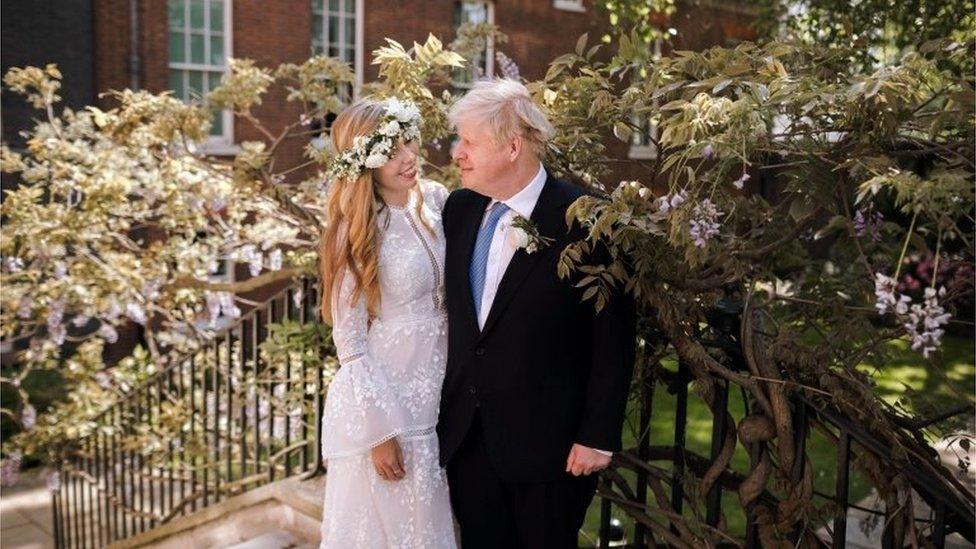
The summit will be Mrs Johnson's first official public engagement since her wedding to the prime minister.
But alongside the very serious hoped for progress on vaccines, on Covid recovery, on the climate, on reaffirming the links between the most powerful democracies in the world after the Trump Presidency, the events that have not been planned might be the ones that stay in the mind.
The next few days will also see the first official public engagements of the new Mrs Carrie Johnson.
Like it or not, always nicknamed the "leaders' wives" summit, the "spousal programme" as it's officially termed is a universe all of its own.
Glimpses and snapshots
This time, without question, this G7 should be an occasion that matters, for the serious discussions that are due to take place.
The government hopes for strong confirmation of the relationship between the UK and the US, commitments to help get vaccines to the developing world, and for progress on climate change.
They plan also for convincing conversations with the other nations that have been invited, what the prime minister is terming the "football team" - the "D 11" - the G7 plus India (attending virtually), South Korea, South Africa and Australia too, forging links ever more important among democracies in the face of growing influence from China.
But this summit will also matter for the glimpses of our leaders, and snapshots of the vital relationships they forge.
Related topics
- Published7 June 2021
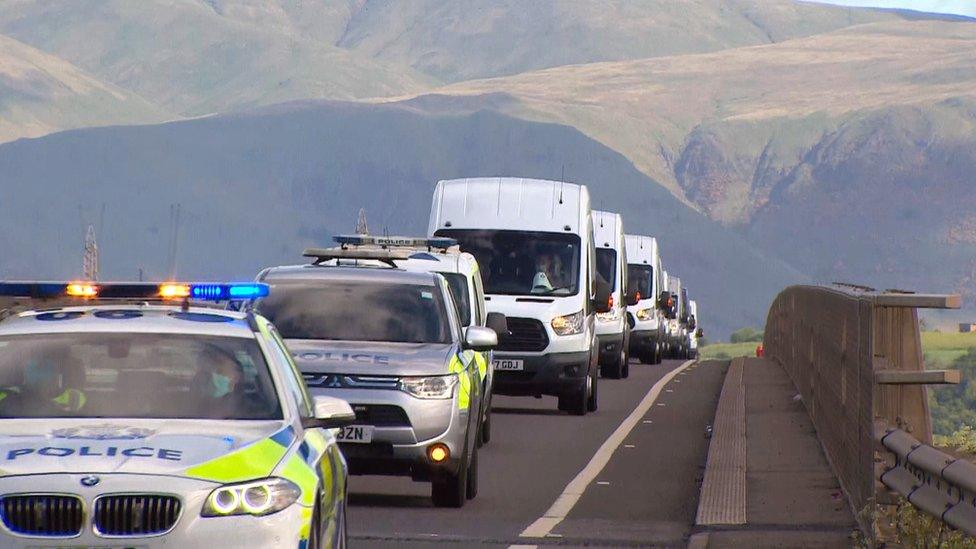
- Published13 June 2024
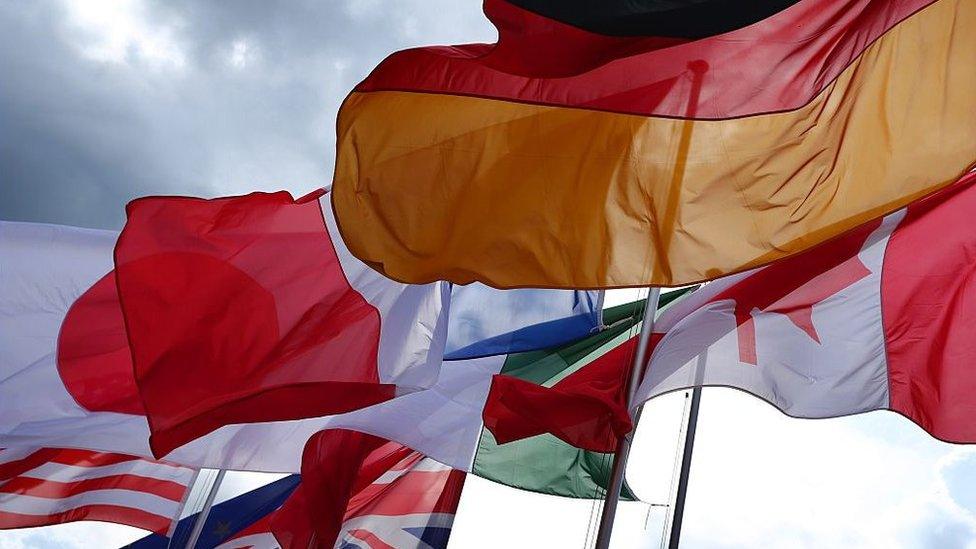
- Published9 June 2021
